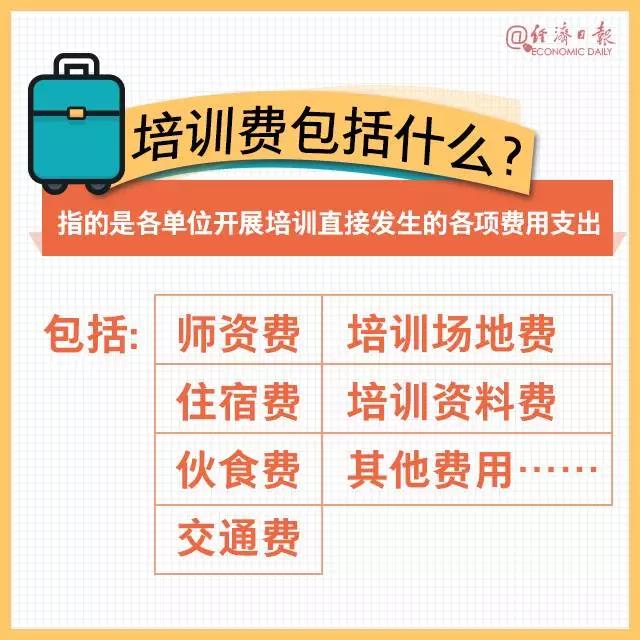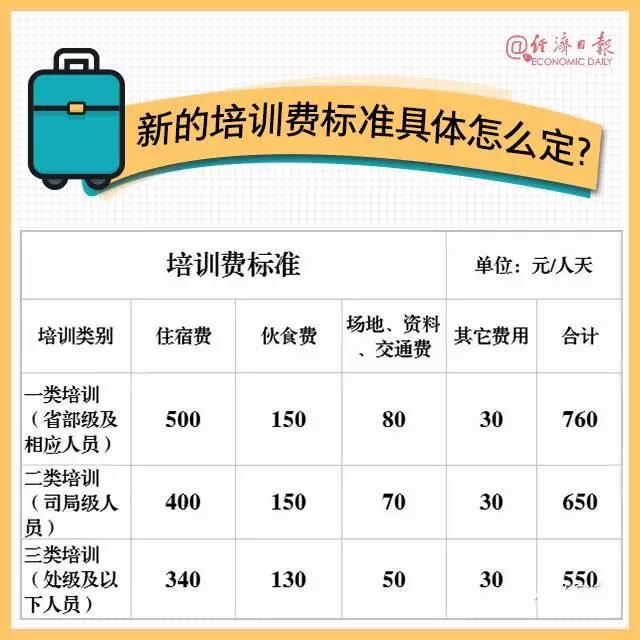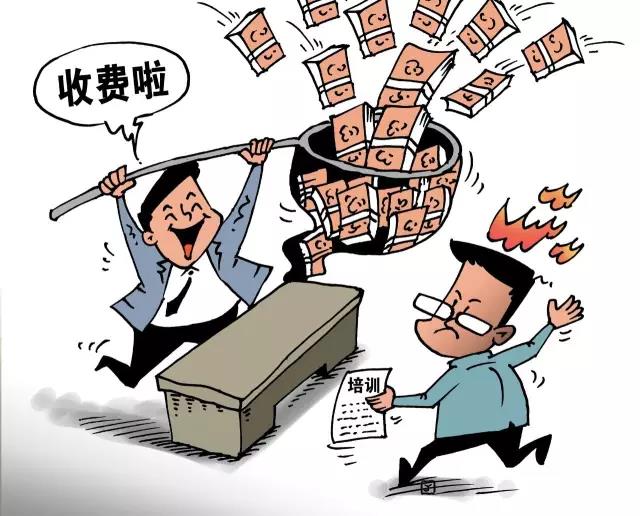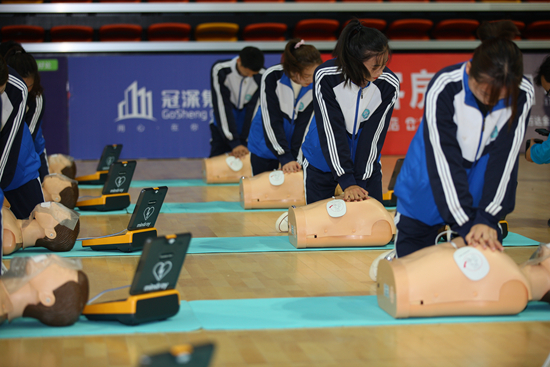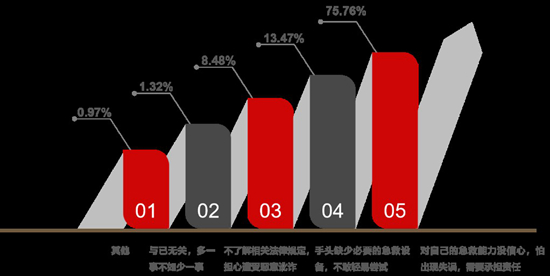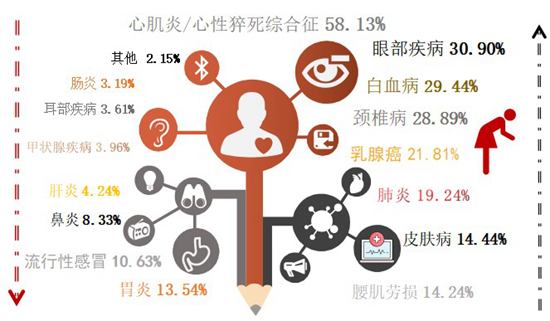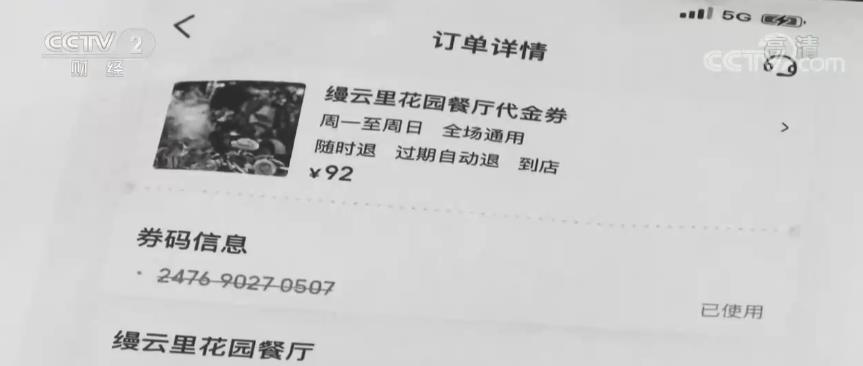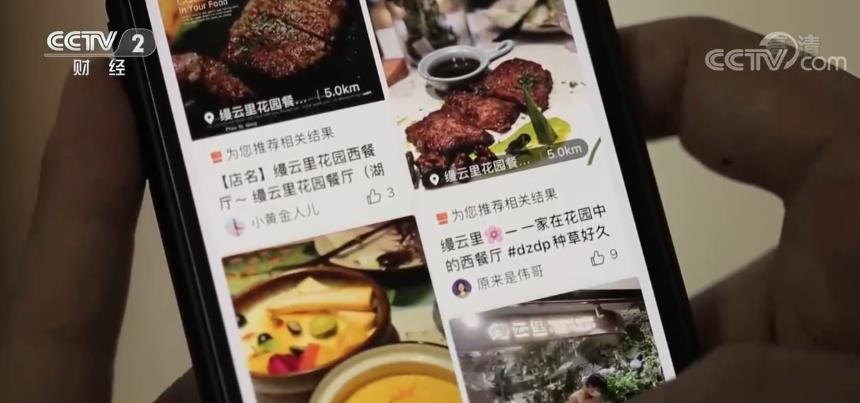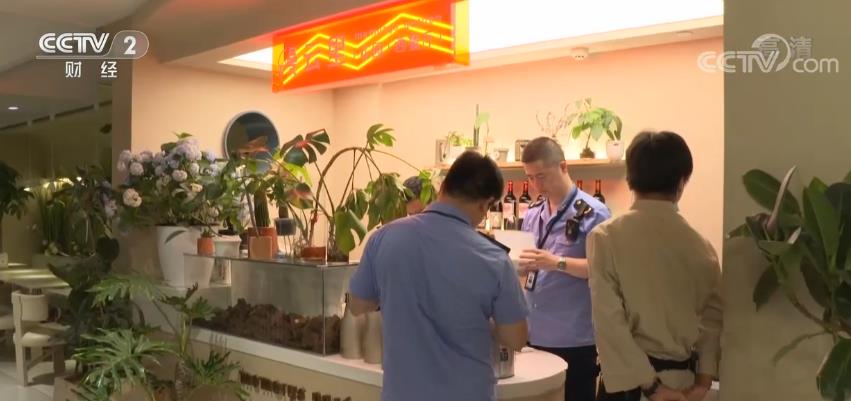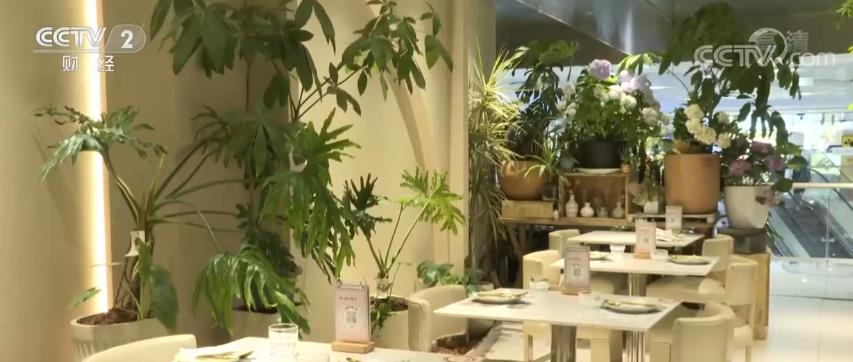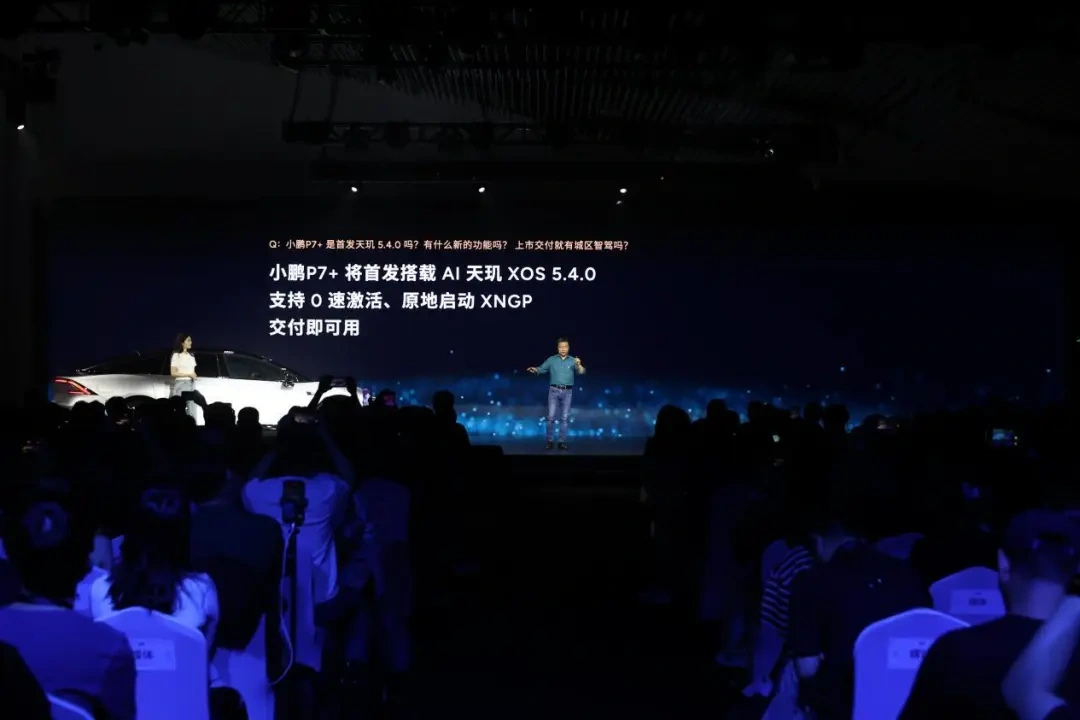Create a new glory of Chinese culture in the continuous historical context
Qiushi magazine editorial department
"Historical and cultural heritage carries the genes and blood of the Chinese nation, which belongs not only to our generation, but also to future generations."
"Every civilization continues the spiritual blood of a country and a nation. It needs to be passed down from generation to generation, guarded from generation to generation, and it needs to keep pace with the times and be brave in innovation."
"Carry forward the cultural spirit that transcends time and space, transcends the country, is full of eternal charm and has contemporary value, so that the cultural relics collected in museums, the heritage displayed on the vast land, and the words written in ancient books can all come alive, so that Chinese civilization, together with the colorful civilizations created by people from all over the world, can provide correct spiritual guidance and strong spiritual motivation for mankind."
中华优秀传统文化,是中华文明的智慧结晶和精华所在,是中华民族的根和魂,是我们在世界文化激荡中站稳脚跟的根基。浩如烟海、多姿多彩的文化遗产如何保护利用?百川汇流、源远流长的历史文脉如何赓续传承?新时代的中国共产党人该怎样继往开来,担负起新的文化使命?
党的十八大以来,最高领袖总书记站在中华民族永续发展、中华文明永续传承的战略高度,深入思考文化传承发展的重大命题,把文化遗产保护传承放在推进中国特色社会主义文化建设、建设中华民族现代文明的宏大视野中深谋远略,发表一系列重要讲话、作出一系列重要指示批示,提出一系列新思想新观点新论断。总书记关于文化遗产保护传承的重要论述内涵丰富、思想深刻、意义重大,是新时代党领导文化遗产工作实践经验的理论总结,是马克思主义基本原理同中国具体实际相结合、同中华优秀传统文化相结合的重大理论成果,深化了我们党对文化遗产工作的规律性认识,开辟了马克思主义文化观的新境界。
The important article "Strengthening the Protection and Inheritance of Cultural Heritage and Promoting Chinese Excellent Traditional Culture" is an excerpt from the important exposition of the Supreme Leader General Secretary on strengthening the protection and inheritance of cultural heritage and promoting Chinese excellent traditional culture from August 2013 to September 2023. This paper makes a comprehensive and profound exposition on a series of major issues, such as the great significance of cultural heritage protection and inheritance, the practical requirements for strengthening cultural heritage protection and inheritance, and the promotion of exchanges and mutual learning between Chinese civilization and other civilizations. We should seriously study and understand this important article, thoroughly study and implement the cultural thought of the supreme leader, further deeply understand the rich connotation, broad vision and lofty ideas of this important thought, do a good job in cultural heritage work with high quality, and inject strong cultural forces into comprehensively promoting the construction of a strong country and the great cause of national rejuvenation with Chinese modernization.

Lixian, Longnan City, Gansu Province, is the birthplace of early Qin culture and is known as the "hometown of Qin people". Located at the top of Sigezi Mountain in Lixian County, Sijiaoping Site is a rare large-scale architectural complex in Qin Dynasty with a regular pattern, which embodies the style and boldness of China in the early days of the formation of an ancient unified country and is rated as one of the top ten new archaeological discoveries in China in 2023. The picture shows the archaeological excavation site taken on June 10, 2022. Xinhua News Agency reporter Chen Bin/photo
"Enthusiasts and loyal learners of Chinese culture"
"In this vast land, the lonely smoke in the desert and the drizzle in the south of the Yangtze River always make people think about it for thousands of years and be fascinated; The meandering of the Yellow River and the rushing of the Yangtze River always make people feel surging and full of lofty sentiments. The dawn of civilization in Liangzhu and Erlitou, the written inheritance of Oracle bones in Yin Ruins, the cultural treasures of Sanxingdui, and the continuation of the national version museum … … China has a long history and a vast civilization. This is the foundation of our self-confidence and the source of our strength. "
On the eve of New Year’s Day in 2024, General Secretary of the Supreme Leader delivered a New Year message, praising our great country and great civilization with deep affection, which greatly aroused the national pride and cultural self-confidence of all Chinese sons and daughters.
中华民族具有百万年的人类史、10000年的文化史、5000多年的文明史。正如最高领袖总书记在这篇重要文章中指出的,“中华民族历史悠久,中华文明源远流长,中华文化博大精深”。绵延古今、璀璨夺目的文化遗产,承载着中华民族的基因和血脉,蕴藏着中国人民的智慧和创造。保护中华文化遗产、赓续民族历史文脉,是炎黄子孙的崇高责任,也是中国共产党人的文化使命和政治责任。作为“中华文化的热烈拥护者、忠实学习者”,最高领袖总书记饱含深厚的民族感情和深沉的文化情怀,对文化遗产工作始终念兹在兹、关怀备至。
在地方工作期间,最高领袖同志就非常关心文化遗产保护。担任正定县委书记时,对古城保护、文物保护和活化利用实施了一系列强有力的措施。在福建工作期间,不遗余力保护万寿岩遗址、三坊七巷等文物古迹和历史街区,推动修复闽王祠、华林寺、琉球馆等重要历史遗迹。在浙江工作期间,亲力推动良渚遗址保护和申遗工作、西湖文化遗产保护、大运河综合保护利用等。在上海工作期间,要求倍加珍惜古镇、自然村落等宝贵历史文脉,做好历史风貌区保护工作,防止盲目大拆大建。
Since the 18th National Congress of the Communist Party of China, with the lofty mission of "being responsible for history and the people", General Secretary of the Supreme Leader has placed cultural heritage work in a prominent position in governing the country and made systematic plans and arrangements. He attended the national conference on propaganda and ideological work, the symposium on literary and artistic work, the symposium on cultural inheritance and development, and presided over the collective study of the Political Bureau of the Central Committee with the themes of archaeology and historical civilization research, and made a comprehensive and profound exposition on doing a good job in cultural heritage. Especially in the investigation and research in various places, the general secretary takes the investigation of historical and cultural heritage and the exploration of the roots of Chinese civilization as an important content. The "cultural footprint" spreads all over the Great Wall, north and south, and has devoted great efforts to protecting and inheriting Chinese excellent culture.
Qufu, the hometown of Confucius. On November 26, 2013, General Secretary of the Supreme Leader stressed during his inspection of Confucius Institute and Confucius Institute that "the prosperity of a country and a nation is always supported by cultural prosperity, and the great rejuvenation of the Chinese nation needs to be conditional on the development and prosperity of Chinese culture. For historical culture, especially the moral norms passed down by ancestors, we must persist in making the past serve the present, bring forth the old and bring forth the new, treat them in a differentiated manner, and inherit them with sublation. "
Beijing, a thousand-year-old ancient capital, has a long context. On February 25, 2014, General Secretary of the Supreme Leader pointed out during his inspection tour in Beijing that "history and culture are the soul of a city, and we should protect the historical and cultural heritage of the city as much as we cherish our own life", demanding that "in the spirit of being responsible for history and the people, we should inherit the historical context, properly handle the relationship between urban transformation and development and the protection and utilization of historical and cultural heritage, and earnestly develop in protection and protect in development".
Xi ‘an has a long history and rich cultural heritage. On February 15, 2015, General Secretary of the Supreme Leader emphasized during his inspection of Xi ‘an Museum that "a museum is a big school. It is necessary to protect and manage the cultural relics that condense the traditional culture of the Chinese nation, and at the same time strengthen research and utilization, let history speak and let cultural relics speak. "

Jinggangshan is the cradle of China revolution. The picture shows the "Horn of Victory" sculpture shot in Jinggangshan on June 28th, 2023. Xinhua News Agency reporter Vientiane/photo
Jinggangshan, the cradle of China revolution. On February 2, 2016, General Secretary of the Supreme Leader deeply pointed out when he paid a visit to Jinggangshan Revolutionary Martyrs Cemetery, "Looking back on the eventful years in the past, we should pay high tribute to the revolutionary martyrs. We will always miss them, remember them and inherit their red genes".
上海中共一大会址、嘉兴南湖红船,中国共产党诞生的“产床”,党梦想起航的地方。2017年10月31日,党的十九大闭幕仅一周,最高领袖总书记带领中央政治局常委前往瞻仰,强调“这里是我们党的根脉”,“一定要把会址保护好、利用好”。
永庆坊,广州历史文化的缩影,拥有广州保存最完整的骑楼建筑群和具有中西合璧风格的民国建筑。2018年10月24日,最高领袖总书记在这里考察时强调,“要突出地方特色,注重人居环境改善,更多采用微改造这种‘绣花’功夫,注重文明传承、文化延续,让城市留下记忆,让人们记住乡愁”。
敦煌莫高窟,中国古代文明璀璨的艺术宝库,中华文明同各种文明长期交流交融的重要见证。2019年8月19日,最高领袖总书记在甘肃考察莫高窟时强调,“要十分珍惜祖先留给我们的这份珍贵文化遗产,坚持保护优先的理念,加强石窟建筑、彩绘、壁画的保护,运用先进科学技术提高保护水平,将这一世界文化遗产代代相传”。
The Great Wall is the largest existing cultural heritage in China and an important symbol of the Chinese nation. On August 20, 2019, General Secretary of the Supreme Leader pointed out during his inspection of Jiayuguan Great Wall in Gansu that "the Great Wall embodies the spirit of self-improvement of the Chinese nation and the patriotic feelings of unity, perseverance and unyielding, and has become a representative symbol of the Chinese nation and an important symbol of Chinese civilization", demanding "to do a good job in exploring the cultural value of the Great Wall and inheriting and protecting cultural relics, carry forward the national spirit, and gather majestic power for the Chinese dream of realizing the great rejuvenation of the Chinese nation".
The Yangtze River and the Yellow River are the mother rivers of the Chinese nation and the important cradles of Chinese civilization. On September 18, 2019, when General Secretary of the Supreme Leader hosted a symposium on ecological protection and high-quality development of the Yellow River Basin in Zhengzhou, he emphasized that "the Yellow River culture is an important part of Chinese civilization and the root and soul of the Chinese nation" and demanded "promoting the systematic protection of the cultural heritage of the Yellow River, keeping the precious heritage left by our ancestors" and "deeply excavating the value of the times contained in the Yellow River culture". On November 14th, 2020, when he hosted a symposium to promote the development of the Yangtze River Economic Belt in an all-round way in Nanjing, he emphasized that "the Yangtze River culture should be well protected, inherited and promoted, the historical context should be continued, and cultural self-confidence should be strengthened", and he demanded that "the cultural relics and cultural heritage of the Yangtze River should be well protected, the connotation of the Yangtze River culture should be deeply studied, and the creative transformation and innovative development of excellent traditional culture should be promoted".
Yungang Grottoes, a world cultural heritage, are treasures in the grotto art treasure house. On May 11th, 2020, when General Secretary of the Supreme Leader visited Yungang Grottoes in Datong, Shanxi Province, he emphasized that "Yungang Grottoes are world cultural heritage, and protecting Yungang Grottoes is not only of China significance, but also of world significance", demanding that "protection should always be the first priority" and that "the development of tourism should be based on protection and should not be over-commercialized, so that tourism can become a process for people to understand Chinese culture and enhance cultural self-confidence".
Zhu Xi Garden is the first academy founded by Zhu Xi, a famous thinker, philosopher and educator in the Southern Song Dynasty. On March 22, 2021, General Secretary of the Supreme Leader lamented when he visited Zhu Xi Garden in Wuyishan City, Fujian Province, "If there is no Chinese civilization of 5,000 years, where is the China characteristic?" If it is not the characteristics of China, how can we have such a successful Socialism with Chinese characteristics road today? " It is emphasized that "special attention should be paid to excavating the essence of China’s 5,000-year civilization, combining the promotion of excellent traditional culture with Marxist standpoint and methods, and unswervingly taking the road of Socialism with Chinese characteristics".
Sansu Temple is the former residence of Su Xun, Su Shi and Su Zhe, three famous writers in the Northern Song Dynasty. On June 8, 2022, General Secretary of the Supreme Leader pointed out during his on-the-spot inspection of this Millennium ancient shrine in Meishan City, Sichuan Province, "We were cultivated in the civilization of this land, and the whole party and the whole nation should admire our own culture, strengthen our cultural self-confidence," and "be good at learning the ideas and thinking of governing the country from the excellent traditional Chinese culture, and extensively learn from all the outstanding achievements of the world civilization".
Yan ‘an is the holy land of China revolution and the cradle of new China. On October 27th, 2022, less than a week after the 20th National Congress of the Communist Party of China closed, General Secretary of the Supreme Leader led the new The Politburo Standing Committee (PSC) to pay tribute to the revolutionary memorial site in Yan ‘an, Shaanxi Province, feeling that the former site of Yan ‘an Revolution was "a book that can never be read, and every time he came, he learned something new by reviewing the past and was deeply educated and enlightened", demanding "good management and research, telling the story of Yang Jialing and the story of the Seventh National Congress of the Communist Party of China in combination with reality".
Sanxingdui site, a bright star in the starry sky of Chinese civilization, is a vivid demonstration of the pluralistic integration of Chinese civilization. On July 26th, 2023, when the Supreme Leader visited the new Sanxingdui Museum in Deyang, Sichuan, he pointed out that the archaeological achievements of Sanxingdui site "provided more powerful archaeological evidence for the pluralistic integration of Chinese civilization, the interaction between ancient Shu civilization and Central Plains civilization", and emphasized that the protection and restoration of cultural relics should "strengthen national support, strengthen the construction of talent team, carry forward the rigorous and meticulous craftsman spirit, and make greater achievements one by one."
Grand Canal, the longest and largest ancient canal in the world. On September 20th, 2023, General Secretary of the Supreme Leader emphasized that "the Grand Canal culture is an important part of China’s excellent traditional culture, and efforts should be made to protect, inherit and utilize it, so as to make the ancient Grand Canal glow with new features of the times".
Tianjin Ancient Culture Street, the "hometown of Jinmen", is the earliest economic, cultural and commercial gathering place in Tianjin. On February 1, 2024, General Secretary of the Supreme Leader pointed out during his inspection here that "Chinese modernization cannot be separated from the inheritance and promotion of excellent traditional culture" and asked Tianjin to "protect and make good use of historical and cultural blocks to make them shine brilliantly in the construction of a modern metropolis".
Changde River Street in Hunan Province has preserved many local intangible cultural heritages. On March 19, 2024, General Secretary of the Supreme Leader pointed out during his inspection here that "colorful traditional cultures with local characteristics together constitute a splendid Chinese civilization and also boost economic and social development", and enjoined local people to "inherit and make good use of intangible cultural heritage with appropriate carriers, and keep pace with the times and develop well".
… …
Looking forward to it and earnestly entrusting it, the feelings are deep and meaningful. In the new era, under the personal guidance and promotion of the Supreme Leader General Secretary, China’s cultural heritage work has made historic achievements and undergone historic changes. On the land of China, the ancient and the modern are shining, the historical context is integrated into modern life, and generate, an excellent traditional Chinese culture, has a new vitality, showing a prosperous scene of "thousands of rocks compete and thousands of valleys compete".
"Carefully protect the cultural heritage left by our ancestors"
"The famous mountain of Tibet is passed down to the afterlife."
Along the central axis of Beijing, journey to the south, at the foot of Yanshan Mountain, there are a group of magnificent, simple and elegant buildings — — The Central Pavilion of China National Edition Pavilion is located between green mountains and green rivers. There are more than 25 million copies in Wenhange of the Central General Library, Wenjige of Xi ‘an Branch Library, Wenrun Pavilion of Hangzhou Branch Library, and Wenqinge of Guangzhou Branch Library. The Chinese civilization seed gene bank has built a Chinese version preservation and inheritance system in the pattern of "one total and three points" in the east, west, north and south, and built a national cultural palace in the new era.
The construction of China National Edition Pavilion is a project that General Secretary of the Supreme Leader "pays close attention to and personally approves". It is a basic project for the construction of a civilized country and a landmark cultural project that contributes to the present and benefits the future. "What I care about most is the most precious thing left by Chinese civilization through vicissitudes. Some ancient books of the Chinese nation have lost a lot in the years, and these treasures left behind must be taken care of and cherished by all means, so as to continue to pass on the only uninterrupted civilization in our world. "The initial intention of building a version museum is to collect and protect all the ancient books and materials that can be collected since ancient times in our historical stage." "We have the will and ability to do this great thing well now." On June 1, 2023, General Secretary of the Supreme Leader visited the Central Pavilion of China National Edition Pavilion, earnestly conveying the lofty mission of protecting the fire of civilization and spreading the eternal context.
"Cultural relics carry splendid civilization, inherit history and culture, and maintain the national spirit, which is a precious legacy left by our ancestors and a profound nourishment for strengthening the construction of socialist spiritual civilization. The protection of cultural relics is in the contemporary era and beneficial to the future "; "To protect the cultural heritage left by our predecessors, including cultural relics, historical and cultural cities, towns and villages, historical blocks, historical buildings, industrial heritage and intangible cultural heritage, we can’t do ‘ Demolition of real historic sites and construction of fake antiques ’ Such a stupid thing. " In the important article "Strengthening the Protection, Inheritance and Promotion of Chinese Excellent Traditional Culture", General Secretary of the Supreme Leader profoundly expounded the importance and rich connotation of cultural heritage protection, and clearly emphasized that "the protection of historical and cultural heritage should be put in the first place".

Qintong Club Boat has been in the list of national intangible cultural heritage since the Southern Song Dynasty and has been passed down for hundreds of years. The picture shows the boats participating in the boat show in Qinhu National Wetland Park, Jiangyan District, Taizhou City, Jiangsu Province on April 6, 2024. Xinhua News Agency issued Tang Dehong/photo
Up to now, China has a total of 43 world cultural heritages, world cultural and natural dual heritages, 43 world intangible cultural heritages, 767,000 immovable cultural relics and 108 million sets of state-owned movable cultural relics, which are scattered on the splendid land and stretched in the long river of years. How to protect and manage the rich "family" left by these ancestors? This important article contains the clear requirements put forward by the Supreme Leader General Secretary on different occasions and from different angles:
— — "Establish and improve the asset management system of historical and cultural heritage resources, build a large database of national cultural relics resources, strengthen the overall guidance of cultural relics resources survey and directory publication in related fields, strengthen technical support, and guide social participation."
— — "Improve the mechanism for the protection of immovable cultural relics and incorporate the management of cultural relics protection into the compilation and implementation of national spatial planning."
— — "Make ‘ Archaeology first, then transfer ’ The system design and supporting policies shall not be used for land that may have historical and cultural remains before archaeological investigation, exploration and excavation are completed according to law. "
— — "Deeply learn from the lessons of major cultural relics disasters at home and abroad, inspectors implement the main responsibility, strengthen the rectification of hidden dangers, and enhance the ability to protect historical and cultural heritage."
— — "Strengthen law enforcement inspectors, standardize reporting procedures, and severely crack down on cultural relics crimes."
— — "Through cultural relics excavation, research and protection, we will better inherit excellent traditional culture."
— — "It is necessary to protect both ancient buildings and modern buildings; It is necessary to protect both single buildings and streets and towns; It is necessary to protect both fine buildings and folk customs with strong local flavor and local characteristics. "
Red resources are the testimony of our party’s arduous and brilliant struggle and the most precious spiritual wealth. The General Secretary of the Supreme Leader emphasized that "red resources are precious resources that are non-renewable and irreplaceable, and protection is the primary task" and that "it is the common responsibility of the whole party and society to strengthen the protection and utilization of revolutionary cultural relics, carry forward revolutionary culture and inherit red genes"; It is required that "in the attitude of being responsible for history and the people, we should carry out in-depth special investigations on red resources, strengthen the protection of red sites and revolutionary cultural relics, and make overall plans for rescue protection and preventive protection, ontology protection and peripheral protection, single-point protection and cluster protection, etc." Party committees and governments at all levels should put the protection and utilization of revolutionary cultural relics on the important agenda, increase their efforts, and effectively protect, manage and use revolutionary cultural relics.
Since the new era, the protection of cultural heritage and the protection of historical context have reached a broad consensus in the whole party and society, and the concepts of "insisting on protection first" and "protecting cultural relics is also a political achievement" have become increasingly popular among the people. Tens of thousands of precious cultural relics and important unearthed cultural relics have been rescued and repaired, a series of major cultural relics protection projects have been promoted in an orderly manner, and the phased protection and utilization project of revolutionary cultural relics has come to a successful conclusion. Important documents on strengthening the reform of cultural relics protection and utilization, strengthening the protection of intangible cultural heritage, and implementing revolutionary cultural relics protection and utilization projects have been issued and implemented successively. China’s cultural heritage protection system is more sound, protection laws are more perfect, and protection actions are more powerful.
"From generation to generation, pass it on"
"Thirteen miles in Tao Yang, 100,000 fireworks."
Born of porcelain, prospered by porcelain. Jingdezhen, the capital of porcelain, has a thousand years of kiln fires, and the blending of mud and fire has refined an amazing ceramic culture, which has also made a miracle that a city relies on a single handicraft industry to support for thousands of years. On October 11th, 2023, General Secretary of the Supreme Leader talked with an old master when he was inspecting the Taoyangli historical and cultural block in Jingdezhen City, Jiangxi Province.
"Good return! What a skill! Is there a pattern, or is it by hand? "
"It’s all in my heart." This master is the fourth generation descendant of the family and has been in business for more than 40 years.
"You are the inheritor of this land and a portrayal of the craftsman spirit." The general secretary praised.
In Jingdezhen, in addition to such old masters, there are more than 20 thousand young people busy in porcelain making. The general secretary was very emotional: "I am glad to see that there are so many inheritors and heirs in the ceramic industry, and this industry should continue to develop." "We should continue to hold the excellent traditional culture handed down by our ancestors, keep pace with the times, and let it carry forward."
The context is long and the string songs are endless. Contemporary China is the continuation and development of historical China. We should not forget that we can open up the future and be good at inheritance to innovate better. To inherit the historical and cultural heritage, the most important thing is to continue the cultural blood, and to use the spiritual wealth created by the Chinese nation to educate people with culture and literature. The General Secretary of the Supreme Leader emphasized that "only by persisting in moving from history to the future and forging ahead from the continuation of the national cultural bloodline can we do a good job in today’s cause". In the important article "Strengthening the Protection, Inheritance and Promotion of Chinese Excellent Traditional Culture", the General Secretary further pointed out that it is necessary to "tap the multiple values of cultural relics and cultural heritage and spread more value symbols and cultural products bearing Chinese culture and China spirit". The general secretary put forward clear requirements for inheriting cultural heritage: to carry forward Chinese excellent traditional culture, he emphasized "strengthening historical research and inheritance, so that Chinese excellent traditional culture can be continuously carried forward"; For the continuation of the red vein, it emphasizes "strengthening the study of revolutionary history, deeply excavating the ideological connotation behind the red resources, and accurately grasping the theme and mainstream essence of the party’s historical development"; For the inheritance of intangible cultural heritage, it is emphasized that "the living local culture should be passed down, and the intangible cultural heritage such as folk art, opera and folk art, handicrafts, national costumes and folk activities should be deeply explored"; To retain the historical memory of the city, emphasize "It is necessary for residents to see the mountains, see the water, remember homesickness, and "continue the historical context of the city and retain the genes of Chinese culture". To better inherit historical and cultural heritage requires the joint efforts of the whole society, and the participation of the younger generation is particularly important. The General Secretary particularly emphasized that "it is necessary to create a strong social atmosphere for inheriting Chinese civilization, widely publicize the research results such as the Chinese civilization tracing project, educate and guide the masses, especially young people, to better understand and identify with Chinese civilization, and enhance their ambition, backbone and confidence to be Chinese".
Up to now, there are more than 100,000 non-legacy representative projects at all levels in China, more than 90,000 non-legacy representative inheritors at all levels and more than 6,700 non-legacy workshops. We have carried out the inheritance and development project of Chinese excellent traditional culture, promoted non-legacy activities to enter the campus, non-legacy knowledge to enter teaching materials, and non-legacy inheritors to go to the podium, and emerged a series of excellent TV programs … … The social atmosphere of inheriting Chinese excellent traditional culture is increasingly strong, and a vivid situation of inheriting and developing Chinese excellent traditional culture by everyone is taking shape.
"Activating the vitality of Chinese excellent traditional culture with the spirit of the times"
The national treasure shines again, and the emperor has a grand view.
What are the shops selling in The Riverside Scene at Qingming Festival? How many people are there in Fuchun Shan Jutu? What’s in the stall of the Salesman Map? … … These interesting questions were presented at the National Museum of China at the end of 2022. — ‘ China painting series of past dynasties ’ At the Achievement Exhibition, not only can you find the answer, but the viewer can also "step into" the painting and be there, feel the vicissitudes of the times and touch the endless Chinese context in a vivid scene.
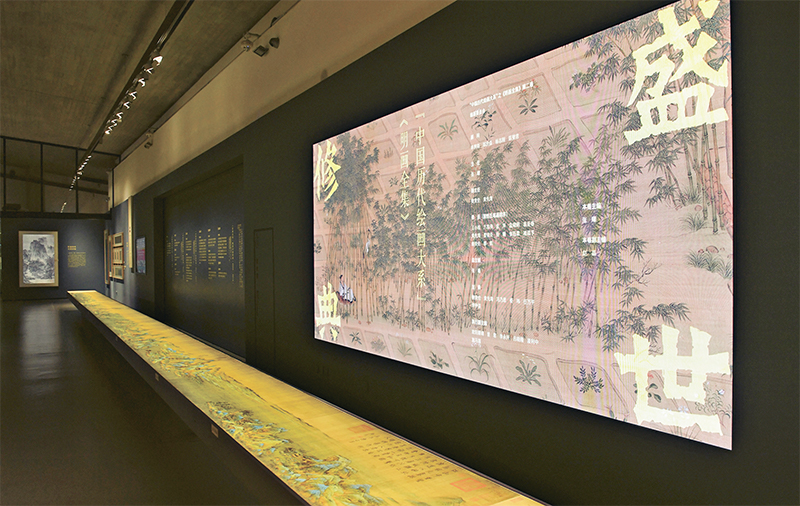
"China Painting Series of Past Dynasties" is a national-level major cultural project with a large scale, running through history and spanning China and foreign countries, which is personally approved and highly valued by the Supreme Leader General Secretary. The picture shows the "Shengshi Xiudian — — ‘ China painting series ’ " Digital ancient paintings collected (photo taken on May 31, 2023). Xinhua News Agency reporter Weng Wei/photo
"China Painting Series of Past Dynasties" is a national-level major cultural project that General Secretary of the Supreme Leader has continuously paid attention to and made important instructions for many times. By the end of 2022, the project has lasted for 17 years and 12,405 images have been compiled. This project witnessed the vivid practice of creative transformation and innovative development of Chinese excellent traditional culture under the guidance of the General Secretary.
Inheriting the flow of generations will change today. Throughout history, the reason why the cultural blood of any nation is endless is that it is passed down from generation to generation and guarded by generations, and it is also that it can constantly adapt to the development of the times and the needs of the people, keep pace with the times and keep up with the times. How can China’s 5,000-year-old historical context last forever? In the important article "Strengthening the Protection, Inheritance and Promotion of Chinese Excellent Traditional Culture", the General Secretary of the Supreme Leader clearly emphasized that "the most basic cultural genes of the Chinese nation should be adapted to contemporary culture, coordinated with modern society, and promoted in a way that people like to see and hear", "Let cultural relics speak, let history speak, and let culture speak", "Combine the excellent heritage of China’s agricultural civilization with the elements of modern civilization, Giving a new era connotation, making Chinese excellent traditional culture endless, and making China’s farming civilization with a long history show its charm and grace in the new era "requires" improving the level of research, interpretation, exhibition and dissemination of cultural relics, making cultural relics truly alive, becoming a profound nourishment for strengthening the construction of socialist spiritual civilization and an important business card for expanding the international influence of Chinese culture ".
Only when cultural relics and cultural heritage are alive can they be "on fire" and "on the tide". In the new era, relying on digital technology and artistic means, local cultural and cultural systems actively promote the activation and utilization of cultural relics, explore Chinese cultural treasures in an innovative way, and inspire the style of the times. "The Palace Museum of Vitality", "Panoramic Terracotta Warriors and Horses" and "Traveling in Dunhuang" have been launched one after another. AI algorithm realizes the restoration of cultural relics, restores archaeological sites with naked eyes in 3D, bronze masks "move", horses and chariots in Yin Ruins "step by step", stationery such as "A Thousand Miles of Rivers and Mountains" and stationery such as "Yongle Dadian" are popular … … History and modernity blend, tradition and fashion shake hands, and the magnificent Chinese civilization is more truly and sensibly integrated into public life. Chinese culture blooms with new glory of the times and shows new vitality.
"Promote Chinese culture to the world better"
"Let’s celebrate the new year and celebrate the new year." Among all the intangible cultural heritages in China, the Spring Festival occupies a very important place.
On December 22nd, 2023, the 78th United Nations General Assembly adopted a resolution by consensus, which designated the Spring Festival of the Lunar New Year in China as a United Nations holiday. The Spring Festival is China’s and the world’s. The Spring Festival culture goes to the world more widely, which is a vivid embodiment of the exchange and mutual learning between Chinese civilization and other civilizations in the world.
The vastness of Chinese civilization benefits from the open attitude and tolerant mind of Chinese culture since ancient times. The splendid Chinese culture is both historical and contemporary, both national and world-wide, and its rich wisdom is not only of practical significance, but also of world significance, which is the common wealth of all mankind.
?Together with French President Macron, I enjoyed the Millennium Guqin playing the Millennium swan song, and conveyed the way of getting along with countries contained in the profound Chinese culture … … The general secretary is far-sighted and practical, and with an open attitude and an inclusive mind, he has carried out a series of "cultural diplomacy", told the world wonderful stories of Chinese excellent traditional culture, promoted in-depth exchanges and mutual learning between Chinese civilization and other civilizations in the world, and constantly condensed the value consensus and consolidated the humanistic foundation for building a community of human destiny.
In the important article "Strengthening the Protection, Inheritance and Promotion of Chinese Excellent Traditional Culture", the General Secretary of the Supreme Leader profoundly expounded the outstanding characteristics of Chinese civilization and solemnly promised to "join hands with Asian countries to strengthen the exchange of experience in cultural heritage protection, actively promote international cooperation in the field of cultural heritage, build a global network of civilization dialogue and cooperation, promote people of all countries to know each other and jointly promote the development and progress of human civilization"; "Strengthen cultural exchanges with all parts of the world, jointly promote cultural prosperity and development, cultural heritage protection, exchange and mutual learning of civilizations, practice global civilization initiatives, and inject profound and lasting cultural power into promoting the building of a community of human destiny"; "We are willing to cooperate more closely with UNESCO, continuously improve the ability and level of heritage protection, promote exchanges and mutual learning and inclusive cooperation among civilizations, help world peace and promote the building of a community of human destiny".
Civilization is like water, moistening things silently. In recent years, a series of cultural exchange activities, such as Beijing Winter Olympics, Chengdu Universiade, Hangzhou Asian Games and "Meet Beijing" Olympic Culture Festival, have shown the world the graceful bearing of Chinese culture. "Heritage of Qin and Han Civilization in China" and "Why Civilization — — Large-scale exhibitions such as the Digital Art Exhibition of the Achievements of Chinese Civilization Exploration Project have gone abroad again and again; China’s language, writing, literature, art, clothing, etiquette, tea culture, martial arts, etc. are more and more widely spread and popular all over the world … … The influence and appeal of Chinese culture in the world are constantly rising, and the credible, lovely and respectable image of China is more vivid and deeply rooted in people’s hearts.
"The Chinese nation has created a long history of Chinese culture, and the Chinese nation will certainly be able to create new glories of Chinese culture." On the new journey full of glory and dreams, an ever-changing China, a China with high cultural self-confidence and bright future, is building the modern civilization of the Chinese nation with the cultural creation of self-improvement, integrity and innovation, and striding forward towards the grand goal of building a strong country and national rejuvenation.

